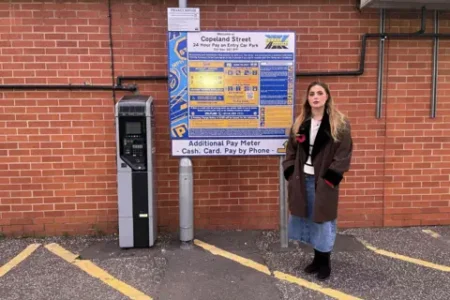## Understanding ISAs and Potential Regulatory Changes
The Individual Savings Account (ISA) has been a cornerstone of personal finance in the United Kingdom since its introduction by Chancellor Gordon Brown in 1999. Recently, Chancellor Rachel Reeves has indicated that she is contemplating significant alterations to the regulations governing these popular tax-exempt savings accounts. The forthcoming details are anticipated to be revealed during her Mansion House speech, an event typically designated for chancellors to share their strategic visions with financial leaders.
The ISA is lauded for its unique tax treatment, allowing individuals to save and invest without facing taxation on their returns. While the allure of tax-free gains has contributed to the wide adoption of ISAs across various banking and financial institutions, there are growing concerns regarding any adjustments that may be made to the existing framework. The popularity of ISAs cannot be overstated, as they appeal to millions of citizens keen on securing their financial futures.
### What Are ISAs and Their Mechanics?
ISAs serve as both savings and investment vehicles that benefit users from a favorable tax perspective. Offered through numerous financial providers, these accounts allow individuals to accrue interest and returns without incurring tax on their earnings. However, individuals must adhere to an annual contribution limit—currently set at £20,000—which can be distributed across different types of ISAs as desired.
It is essential to note that ISAs do not automatically close at the end of the tax year; participants can either continue adding funds to existing ISAs or open new accounts in subsequent tax years. Eligibility to open an ISA requires individuals to be at least 18 years old, and they must either be UK residents or members of the armed forces serving overseas.
### Differentiating Between Cash ISAs and Stocks and Shares ISAs
ISAs can essentially be categorized into two primary types: cash ISAs and stocks and shares ISAs.
**Cash ISAs** operate akin to standard savings accounts and are predominantly offered by banks and building societies. In a cash ISA, money deposited earns interest, which remains untaxed, potentially allowing savers a more lucrative option as opposed to traditional savings accounts. Basic rate taxpayers must be cautious, as they may still incur taxation on savings interest once it exceeds a specific threshold. Here, cash ISAs emerge as a safe haven for millions holding substantial amounts of savings.
Conversely, **stocks and shares ISAs** involve investing funds in equities, bonds, and various investment funds rather than merely holding cash. Although this route promises higher returns, it is not without risks; the value of investments may fluctuate, leading to potential losses. However, the appeal of tax-free capital gains and income has turned stocks and shares ISAs into a tempting alternative for individuals looking to grow their wealth.
### Exploring Additional Types of ISAs
Beyond the traditional offerings, ISAs include categories such as **Junior ISAs**, which allow parents to save on behalf of their children until they turn 18, and **Lifetime ISAs** (LISAs), designed to assist individuals in saving for their first home or retirement, with a government bonus for contributions. Another innovative option, **Innovative Finance ISAs**, permits investments in peer-to-peer lending without the involvement of banks.
### Speculations on the Potential Changes to ISA Rules
Although speculation surrounds possible reforms to ISAs, Chancellor Reeves has yet to unveil concrete plans. Recent Treasury documents hinted at a review of the current system aimed at balancing investments between cash and equities to enhance returns for savers and foster broader participation in retail investments. Anticipation is escalating that Reeves will provide more definitive proposals during her upcoming speech.
Analysts predict that the annual allowance for cash ISAs may face reductions, prompting discussions about the viability of completely eliminating cash ISAs. In stark contrast to this perspective, proponents of reform maintain that such changes may encourage more individuals to invest in stocks and shares ISAs, thereby stimulating economic growth and prosperity.
### Contemplating the Risks of Cutting Cash ISA Allowance
Opponents of proposed changes express apprehension about the actual impact these alterations may engender on individual savings behaviors. Critics argue that merely reducing the allowable contributions into cash ISAs will not guarantee an uptick in stock investments. They contend that this strategy could leave many individuals with insufficient savings or facing higher taxes on funds saved outside of an ISA context.
Moreover, organizations, particularly building societies, warn that diminishing cash ISAs could jeopardize their operations, as these accounts represent a critical source of funding for mortgage lending and other loan products. In conclusion, while the potential reform of ISA regulations holds promise, it also necessitates careful evaluation to prevent unintended repercussions on both savers and financial institutions.










